![]()
Thu, Sept 01, 2011 | Debka.com
Libya: U.S. confirms al Qaeda members’ role in rebel command
A Debkafile report:
The Obama administration finally acknowledged Wednesday, Aug. 31 that al Qaeda elements had been fighting in Libyan rebel ranks in last week’s capture of Tripoli. This came about in a cautious remark from the office of President Barack Obama’s terrorism adviser John Brennan:
“Some members of the LIFG [Al Qaeda’s Libyan Islamic Fighting Group offshoot] in the past had connections with al Qaeda in Sudan, Afghanistan or Pakistan. Others dropped their relationship with al Qaeda entirely. It seems from their statements and support for establishing a democracy in Libya that this faction of LIFG does not support al Qaeda. We’ll definitely be watching to see whether this is for real or just for show.”
DEBKAfile’s military sources revealed Sunday, Aug. 28 that LIFG fighters had fought in the rebel capture of Tripoli on Sunday Aug. 21. Their commander, Abd Al-Hakim Belhadj, a veteran al Qaeda fighter from Afghanistan later extradited to Libya and held in prison there, had led the battle for the Qaddafi stronghold of Bab al-Aziziya two days later and has since proclaimed himself Commander of the Tripoli Military Council.
This confronts the US administration with the sole choice of accepting this fait accompli, especially after American reporters discovered in Muammar Qaddafi’s abandoned intelligence headquarters files attesting to the former Libyan ruler’s campaign against Al Qaeda’s Libyan recruits and outside infiltrators. Those files contained a map charting the day to day movements of al Qaeda and other extremist Muslim operatives in the country and their current addresses.
They also found documentary evidence of the close reciprocal ties Qaddafi maintained with Western counter-terror agencies, sharing with them the data his agencies gathered on al Qaeda movements.
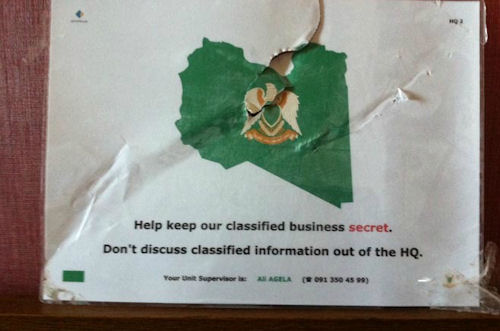
A poster bearing the logo of French firm Amesys, found in a monitoring room at Tripoli's internal security building. (source: WSJ)
Until now, President Barack Obama dismissed Qaddafi’s warnings that the rebellion which broke out against him in February would open the door for al Qaeda to seize power in Libya.
Our intelligence and counter-terror sources find the Brennan statement from the White House raised more questions than it answered:
1. Nothing was said about Washington’s reaction should the LIFG turn out in the future to pursue al Qaeda’s political, religious and terrorist agenda “for real” and not “just for show.” Will the US accept the LIFG commander Belhadj’s role as commander of Tripoli or take action to remove him? And what if its leaders are shown to be working closely with Al Qaeda in the Maghreb — AQIM?
2. How could the Obama administration subscribe to NATO placing British and French special forces at the forefront of the battle for the rebel conquest of Tripoli in direct violation of the UN Security Council confining NATO’s intervention to air strikes — and only when they needed save civilian lives?
Our military experts stress that without those troops on the ground and NATO’s constant aerial pounding of Qaddafi’s forces, the rebels would never have taken the Libyan capital — or much else outside their home base of Benghazi.
The Libyan venture has therefore placed the United States in the anomalous position of opening the Libyan door to rebels allied with groups owning a strong al Qaeda background while at the same time fighting similar groups in Afghanistan, Pakistan, Iraq and Yemen.
3. What message does the Libyan episode send al Qaeda and other Islamic extremist organizations? Might they not infer that the US and NATO will fight their battles against autocratic regimes in other countries?
4. Muammar Qaddafi while fighting for his life around Sirte was quick to pick up on the real balance of strength. He concluded that if it is permissible for the US, Britain and France to back forces aligned with Al Qaeda, he might profitably tread the same path.
He accordingly sent his son Saadi on Wednesday Aug. 31 to contact the LIFG Abd Al-Hakim Belhadj, the self-styled military governor of Tripoli, to propose on behalf of his father talks for ending the war in order to avoid further bloodshed.
Qaddafi sent another son, Saif al-Islam, with the opposite message to Al Arabya TV: The war goes on, he said, his father was fine and he has 20,000 armed fighters standing by in the city of Sirte ready to fight for him to the death.
It is important to note that Saadi bypassed the rebel NTC leaders in Benghazi and its Tripoli commanders and took his offer straight to the leader of al Qaeda’s Libyan offshoot. The deposed Libyan ruler clearly understands that to pursue his threatened guerrilla war against the rebels and their foreign sponsors, he will have to play ball with al Qaeda elements, just as the West does.
Later Wednesday, British sources reported several undetonated bomb cars had been found in the capital, signifying the onset of Qaddafi’s threatened guerrilla war.



 RSS
RSS

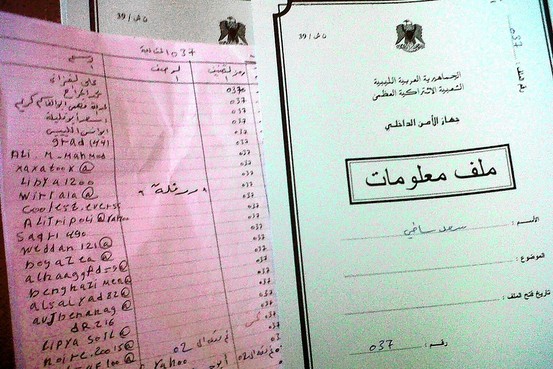


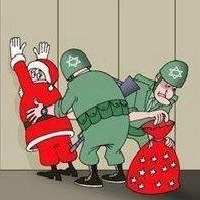
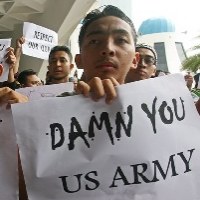
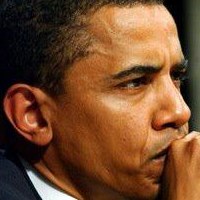




Libya: U.S. confirms al Qaeda members’ role in rebel command | Middle East news, articles, opinion a http://t.co/kk9tuOx
Libya: U.S. confirms al Qaeda members’ role in rebel command | Middle East news, articles, opinion a http://t.co/kk9tuOx